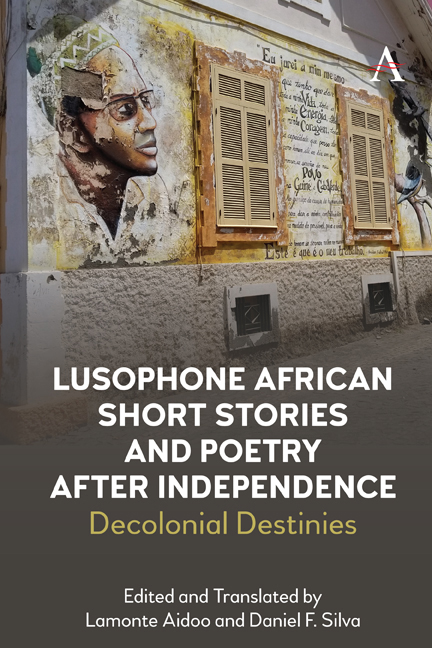Chapter 21 - Alda Espírito Santo
Published online by Cambridge University Press: 23 February 2022
Summary
Introduction
Alda Neves da Graça do Espírito Santo (1926–2010) was born in São Tomé city to a well-known family with many ties to Portuguese colonial entities. Following thecompletion of elementary school at a local institution, she moved with her family to northern Portugal and later to Lisbon where she began her university studies. While in Lisbon, she joined the famed student association, Casa dos Estudantes do Império (Students of the Empire) and became part of a historically notable social circle, which included other students from Portugal's African colonies. These included Amílcar Cabral of Guinea-Bissau, Mário Pinto de Andrade and Agostinho Neto of Angola, and Noémia de Sousa and Marcelino dos Santos of Mozambique. Together, they formed the Center for African Studies in Lisbon while discussing modes of anticolonial struggle and imagining political sovereignty for their homelands despite surveillance from the Portuguese state. As noted in the introduction, while decolonization processes were underway in Africa, from different European powers, during the 1950s, the right-wing fascist state led by António de Oliveira Salazar insisted on maintaining Portugal's African colonies arguing that these were provinces of a multi-continental nation.
Following her studies, Espírito Santo returned to São Tomé e Príncipe in 1953, working as a school teacher while remaining involved in nationalist movements, namely, the Movement for the Liberation of São Tomé e Príncipe (MLSTP), while also striving to foment national consciousness through her teaching, literary work, and popular mobilization. For these forms of dissidence she was imprisoned by the Portuguese colonial authorities in December of 1965 and held for several months. Shortly after returning to São Tomé e Príncipe, she began writing poetry on her homeland and on the excesses of colonial power and the oppression endured and resisted by San Toméans. Critic and historian of Lusophone literatures, Russell Hamilton considers Espírito Santo as an “incipient voice of militancy” (370), crucial to the formation of San Toméan literature.
Her pre-independence works include poems notable for both their stylistic sophistication and their political engagement, as with the case of “Trindade,” historicizing, from a colonized perspective, the Portuguese massacre on February 3, 1953, of the Batepá rebellion, initially led by native San Toméans against conditions of forced labor.
- Type
- Chapter
- Information
- Lusophone African Short Stories and Poetry after IndependenceDecolonial Destinies, pp. 221 - 228Publisher: Anthem PressPrint publication year: 2021



